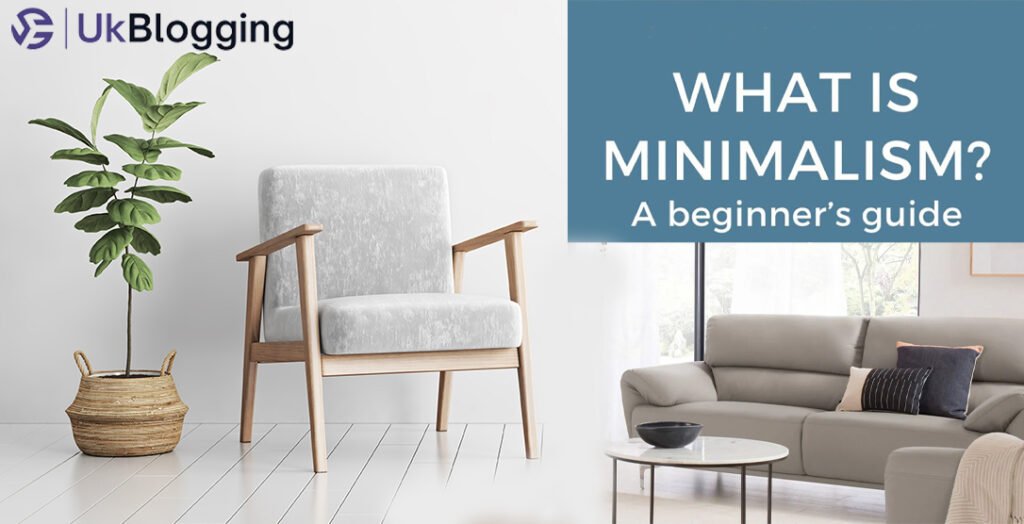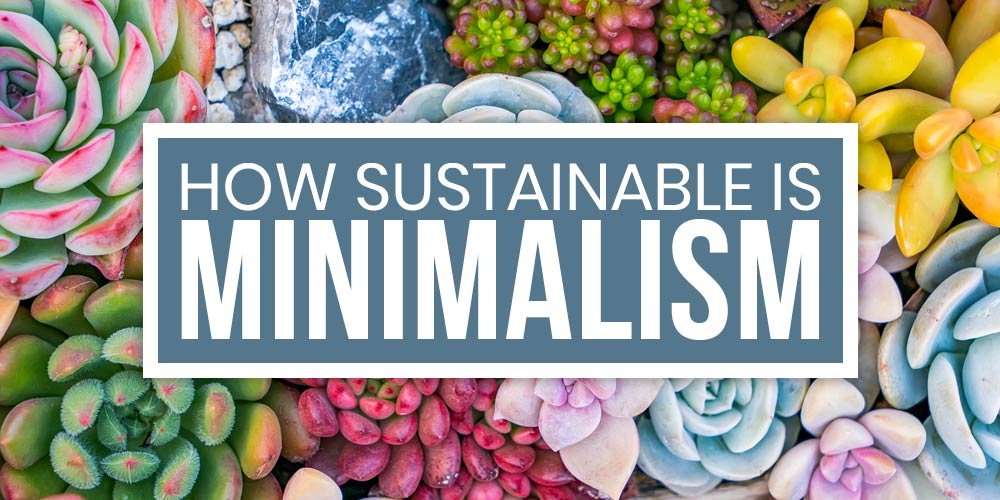Within the recent past, the minimalist lifestyle has attracted wild attention in most parts of the globe. With consumerism, excess, and fast-paced taking over the order of the day in the world today, people appear to have begun appreciating the wide array of advantages that accrue from reducing clutter and paying attention to what really matters. Living a minimalist attitude to life means being consciously in control over one’s possessions, commitments, and thoughts. This article presents a number of UK benefits that one can relate to in leading a minimalist lifestyle, running the gamut from financial freedom via improved mental health to environmental sustainability and personal growth.
What is minimalism?

It does not relate to cleaning your house or getting rid of extra stuff in life. Rather, it is a holistic approach that allows an individual to give more focus on quality than quantity, focus on his most important values, and cut down distractions. Minimalist philosophy could be applied in home décor, work commitments, relationships, and personal goals. At its very core, minimalism is a process of subtracting the superfluous to create space for what matters. While consumerism and the relentless pursuit of material wealth go on to be the order of the day in the UK, it does emerge that minimalism does turn out to be a breath of fresh air. It offers a way out of the pressures of needing more and into the realm of living intentionally.
1. Financial Freedom

One of the most immediate benefits of leading a minimalist life could be financial freedom.
By adopting such a mindset, people often reduce their expenditure and thus are in a position where they actually can save more. This becomes particularly paramount in the UK because the cost of living is really high, especially for those who stay in London; mindful decisions on where exactly to spend one’s money make a whole lot of difference in personal finances.
Minimalism is the subtle art of making people not buy stuff because they feel compulsive or it is a part of impressing society. Alternatively, people in their lives become satisfied with just buying what there is a personal need for—a genuine need—useful items or genuinely giving one happiness, that too being some type of clothes, gadget, or household appliance. UK minimalists refrain from impulsive buying, hence loading less economic load on themselves, which then gradually increases the savings, eventually making less outstanding debt and subsequently a budget covering all other healthy investment-worthy options necessary to live fully.
In a society where people mostly spend more than they earn, especially with easy credit and loans available, minimalism provides financial freedom. Reducing unnecessary expenses enables them to pay debts faster, make investments in their futures, or save for vital life milestones, like buying a home or traveling.
2. Less Stress, Better Mental Health

Like many other parts of the world, the issues of stress burden people of the UK due to workplace pressures or concerns regarding personal and financial situations, and hence a lack of respite in life. When a person dwells in an environment that is disorganized and full of clutter, then physical disorganization automatically invites internal mental disarray. The immediate solution lies with minimalism and reducing this clutter weighing heavy upon an individual’s mind.
Several studies proved that clutter creates negative impacts on mental health by inducing anxiety and depression or causing a reduction of productivity. A person who once sought to lead a minimalist lifestyle would develop a zone without chaos in his house or emotional ease to himself. In such a scenario, it will all be tranquil to enable getting better focus, taking more time in getting oneself well-relaxed, and revitalizing. More importantly, this practice of living a minimalist lifestyle often stirs people toward spending more time in endeavors that enhance psychological health, such as jogging, reading books, or spending excellent time with family and friends. Instead of making a collection or working harder to pay them off, many UK minimalists place more priority on experiences and relationships, and these have a more positive connection to happiness or life satisfaction.
3. Environmental Sustainability

Most people these days are conscious of their ecological footprint because they feel they live in a period of climate change and environmental degradation. It should work for the UK due to the fact that some interests in sustainability and green living are already emerging. Minimalists, to some point, usually give a positive contribution to the environment by making few purchases and reducing waste. The minimalist lifestyle implies that people consume fewer products; durable and long-lasting ones are bought instead of fast fashion or disposable goods. This cuts the demand for mass production, which in turn reduces pollution, resource depletion, and carbon emissions. Such UK minimalists make sure that by picking second-hand products or recycling products, the goods they decide upon don’t get landfilled after extremely short usage.
More importantly, it invites man to be sustainable with other available resources such as energy and water and utilize environment-friendly modes of transport. For example, instead of relying on numerous cars or constantly commuting, a minimalist would be observed biking or on foot based on the area in question, or just generally hanging onto public transport for his basic trips; therefore, this diminishes his footprint.
4. More Focus on What Really Matters

Living in the UK’s consumer-oriented, fast-moving society, sight of much that really truly matters can be so quickly lost: work pressures, the family, social media—there is simply no end to the advertisements that beset you from every quarter—can leave you very distracted, connected to less than what matters so well, and with such value to yourself. Minimalism is the beginning of an intrinsic approach to cut out the noise so your honed thoughts on what actually truly matters shine brightly.
Simplification of life frees the minimalist to pursue one’s passions, goals, and relationships with more time and energy. They are free to focus on personal growth, health, and meaningful experiences—not getting caught in some kind of never-ending vicious circle of acquisition versus distraction. Minimalism is, therefore, the solution for people who want to take better care of themselves and their well-being at a time when work-life balance is skewed towards work in the UK. What’s more, minimalism helps people to be more deliberate with their time: fewer commitments and distractions mean people can finally do what makes them happy, whether mastering some hobby, traveling, or simply spending time with loved ones.
5. Increased Productivity and Clarity

Another great advantage of living a minimalist lifestyle in the UK is productivity. By removing distractions and allowing themselves to think more clearly, one can build better focus. This might be very important in a working environment when one needs to multitask, meet various deadlines, and fulfill commitments. It is all about designing your minimalist home or office in a way to invoke focus and efficiency. Suppose any person gets rid of extra stuff in their home and arranges the necessary belongings; it provides one with an atmosphere that really compels focusing and being productive. Various researchers have established that a clutter-free workplace actually enhances one’s creativity, diminishes stress levels, and offers efficiency. As working at home is on the increase within the UK, it creates that room and space, which is important in order for someone to have success and productivity within the home environment. Not only does minimalism declutter one’s surroundings but also cleans up a person’s calendar and commitment lists. Minimalists do not overcommit or pack every second of their day with tasks and duties, focusing on their target and not piling more on their plates. This helps a person not only to be more productive but also to maintain a better work-life balance.
6. Better Relations

It might nourish relationships; it could be in the circle of family or that of friends. Social relationships sometimes get stretched due to busy schedules and modern lifestyles; hence, a minimalist lifestyle could be the best option whereby people of the UK may create meaningful relations. Instead of fitting in an enormous amount of time and quantity, the minimalist will surely focus on investing a few qualitative moments in social connection; he or she, therefore, is going to spend time with people who bring in joy and/or support into one’s life. There is no pressure to attend everything or to know everybody, since it is far easier and much more effective to invest in people who share your values with you and offer mutual support in return. Besides, minimalism nurtures open communication and mutual objectives that could help solidify cooperation and understanding in the relationships. With reduced commitments and a focus on the vital, people should not experience unnecessary pressures and conflicts; therefore, the relationships can be strong and satisfying.
7. More Flexibility and Freedom

A minimalist lifestyle allows one to have more flexibility and freedom in personal and professional life. Since minimalists do not carry extra baggage in possessions or commitments, they can adapt and move with changes effortlessly, putting any opportunity to work. In the UK, minimalism is very much about unlocking people from all their mortgage chains, car loans, and even other financial bondage. All the same, modest living frees one financially and provides one with easy abilities to change location, move, or take newer career opportunities without much hassle. It creates time freedom. With less to look after and less time wasted in consumerist actions, minimalists are free to invest their time in what they really enjoy—be it trying new hobbies, traveling, or basically spending more time with nature.
Conclusion
Minimalism has roots that are deep and strong, grown now in most parts of the world, offering a remarkably powerful antidote to modern-day living pressure. A minimalist lifestyle will be promoted for various benefits such as financial freedom, mental health, environmental sustainability, and personal growth. Simplification in life helps an individual get more clarity in life; peace of mind brings fulfillment in life. But with consumer culture continuing to boom, minimalism is at its heart a refreshing counterpoint: intentional living, in-depth relationships, and sustainable behavior towards the planet. From cleaning one’s house and reducing waste to investing in what is really important, this lifestyle has changed so many lives. And as the numbers in the UK now increasingly turn to it, minimalism promises a considered, balanced, and sustainable future.
